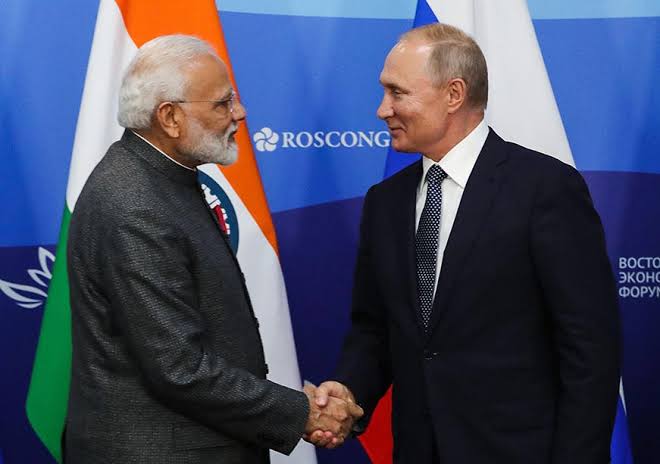New Delhi, Aug 2, 2025: India has reaffirmed its commitment to sourcing crude oil from Russia despite growing international scrutiny and recent comments from U.S. President Donald Trump suggesting a potential halt. Speaking to ANI, government sources emphasized that Indian oil refiners make procurement decisions based on pragmatic considerations such as pricing, crude grade, inventory levels, and logistical viability.
Russia, the world’s second-largest crude oil producer and exporter, continues to play a key role in the global energy landscape, with an output of 9.5 million barrels per day (mb/d) and exports amounting to nearly 7 mb/d. Indian officials underscored that fears of Russian oil being excluded from global markets led to price spikes Brent crude touched US $137 per barrel in March 2022 prompting India, the world’s third-largest energy consumer, to adapt its sourcing strategy. With 85% of its crude oil dependent on imports, India prioritized affordability and energy security while remaining compliant with international norms.
President Trump’s recent comments that India “may no longer be buying oil from Russia” were welcomed by some in the U.S., but Indian sources swiftly refuted the claim, reiterating that India has not halted Russian oil purchases. They further stressed that Russian crude has not been sanctioned by either the U.S. or the EU. Instead, it is governed by a G7-EU price cap framework, which aims to restrict Moscow’s revenue without disrupting global supply chains. Indian refiners, they added, have remained fully within this framework, adhering to the U.S.-recommended price cap of $60 per barrel, and are prepared to comply with the EU’s newly suggested cap of $47.6 effective from September.
While India has steered clear of importing truly sanctioned oil from Iran and Venezuela, its engagement with Russian oil, the sources clarified, has been both lawful and essential for global oil market stability. India’s consumption of discounted Russian crude, coupled with the OPEC+ production cuts of nearly 5.86 mb/d, is credited with helping to prevent oil prices from breaching the March 2022 peak. “Had India not acted, inflationary pressures worldwide could have intensified,” said the sources.
Adding perspective, Indian officials pointed to the European Union’s own energy transactions with Russia during the same period. The EU, they noted, remained the largest importer of Russian LNG, accounting for 51% of its exports, followed by China and Japan. The bloc also led pipeline gas imports, making up 37% of that share.
The Indian government reiterated that its energy strategy is guided by national interest while contributing to global energy market stability. In their view, India’s approach has ensured a steady flow of oil, balanced prices, and upheld its responsibilities within the international system.
India Defends Russian Oil Purchases Amid Tariff Threats and Global Scrutiny

